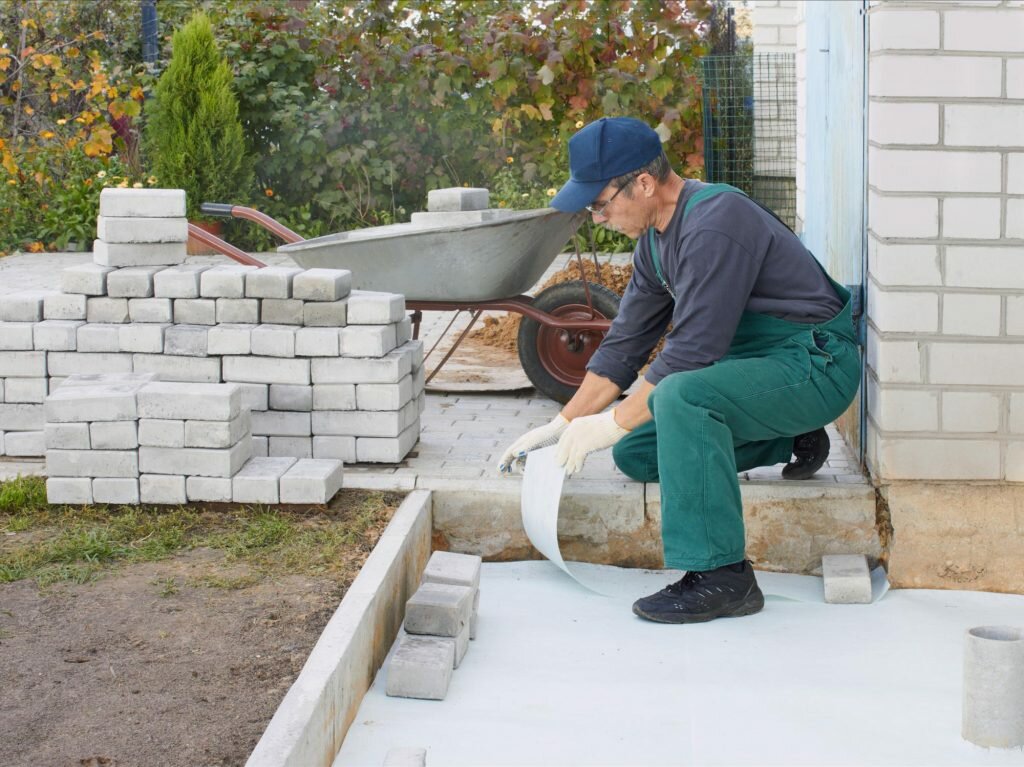Stone Paving

Paving stones are a newer trend that has actually been practised for centuries. These stones are a wonderful alternative to materials such as concrete and asphalt. Paving stones have numerous advantages over other types of paving but can be a little more costly and time-consuming to install. Some of the advantages, in the trade-off, are that, because each stone is separate from each other, they can work in tandem to distribute weight more evenly. And, since paving stones have interlocking joints, they can adjust with the movement of the earth and drain excess water better than other paving methods.
Flagstone and Fieldstone
Flagstone and fieldstone are the choices typically associated with natural stone pavers. These stones are chosen because of their durability, beauty and colour variations. These stones are typically more costly than other types of pavers, but they are more aesthetically pleasing. These types of pavers are often used for walking paths or areas with moderate to heavy foot traffic. We generally do not use natural stone for driveway paving as, even though they are beautiful and durable, they do not hold up as well, under immense weight, as other stones do.
Brick Stone Pavers
Brick is the paving stone that has been used to pave for centuries now. The earliest roads were made of interlocking bricks, and this has continued to be a paving staple for years. Today’s bricks are made a bit differently, usually from clay or concrete, to ensure prolonged life and some incredible weight distribution. These bricks can be dyed almost any colour, lending themselves to be grey or shades of red, like traditional brickwork. Brick paving is strong, durable and very weather resistant. These can also be sealed for an even longer-lasting lifespan.
Concrete Stone Pavers
Concrete stone pavers are human-made stone pavers that are constructed of concrete, with an added aggregate for strength. These types of stone pavers are the strongest choice, as they are human-made and tested for weight distribution. Concrete stone pavers can be poured in a variety of shapes, sizes and colours. These stone pavers are solid and weather resistant. They are also very cost-effective. One of the drawbacks, however, is that concrete stone pavers definitely need to be sealed. If these pavers are not sealed, the sun and other elements will greatly damage them.
Upkeep
One of the greatest advantages of stone pavers is that they don’t require much upkeep at all. Because these pavers are interlocking, they contain joints, which allow the pavers to move and breath with the natural movement of the earth. This enables slight shifting of stone so that cracks and stress fractures don’t happen. This leads to less need for repair and replacement. This also ensures durability and better weight distribution. The only downside is that, because the stone is more apt to be damaged by elements, it should be sealed. If stone pavers are sealed correctly, they will last for a very long time.
